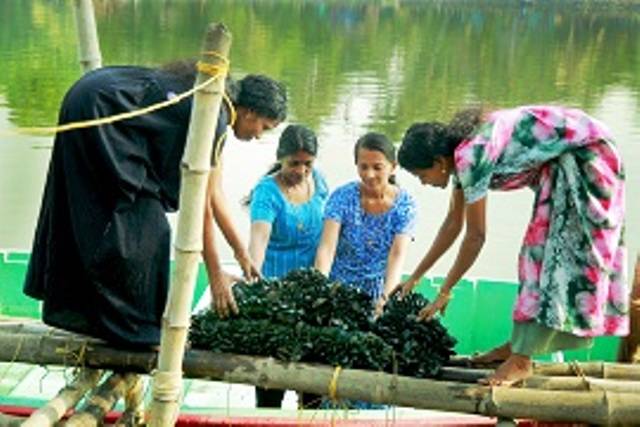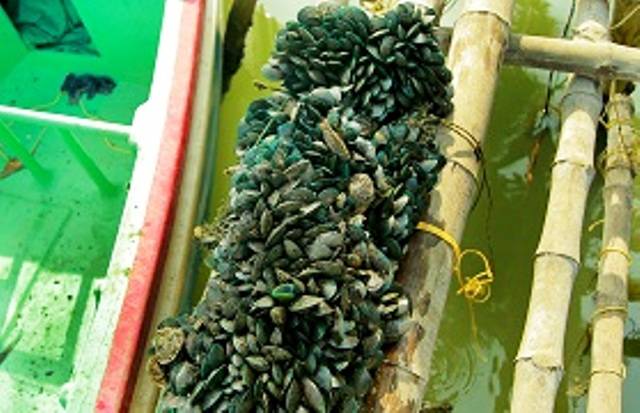
The farmers, who turned into bivalve farming as an additional livelihood option, sustained severe loss in the floods which destroyed their oyster farming units in August last year in Kerala. They were also worried about the post-flood changes in the aquatic ecosystem that may affect the mussel farming. But, with the help of ICAR-CMFRI, the farmers are now, relieved with a good harvest and are hopeful to make good from their losses.
Mussels contain 146 calories per 3-ounce serving, and also supply 20.23 grams of protein. Most of the 3.81 grams of fat are in the form of heart-healthy unsaturated fats, making them a nutritious addition to your diet. You also get a good amount of certain vitamins and minerals that help support your health.
The ICAR-Central Marine Fisheries Research Institute (CMFRI), Kochi has helped the farmers of Moothakunnam, one of the worst hit villages in Kerala during the devastating floods last year to re-build their lives under its guidance.

The farmers including mostly the women of the village in Ernakulam District, Kerala have had a bumper harvest of mussels with the scientific guidance from the ICAR-CMFRI. The 5 self-help groups in the region reaped a total yield of 6.5 tonnes of mussels in as many as 5 farming units. With the help of the structure made of bamboo with a size of 5 metre each width and length, the farmers started the farming in January. The farming that lasted for 5 months was carried out under the guidance of the Molluscan Fisheries Division of the ICAR-CMFRI. After the harvest, the produce was undergone depuration, a scientific process of expelling contaminants from the gills and guts of the mussels by providing them with good purified seawater before they can be used for consumption. The technology was developed by the ICAR-CMFRI.
As there is no need for feeding, the bivalve farming is less expensive as compared to the fish farming. However, the initial capital to set-up the farming units is the major expense of the farming. The Mussels are rich in protein, lipids, carbohydrates, minerals (calcium, iron, copper, zinc, phosphorus) and vitamins.








